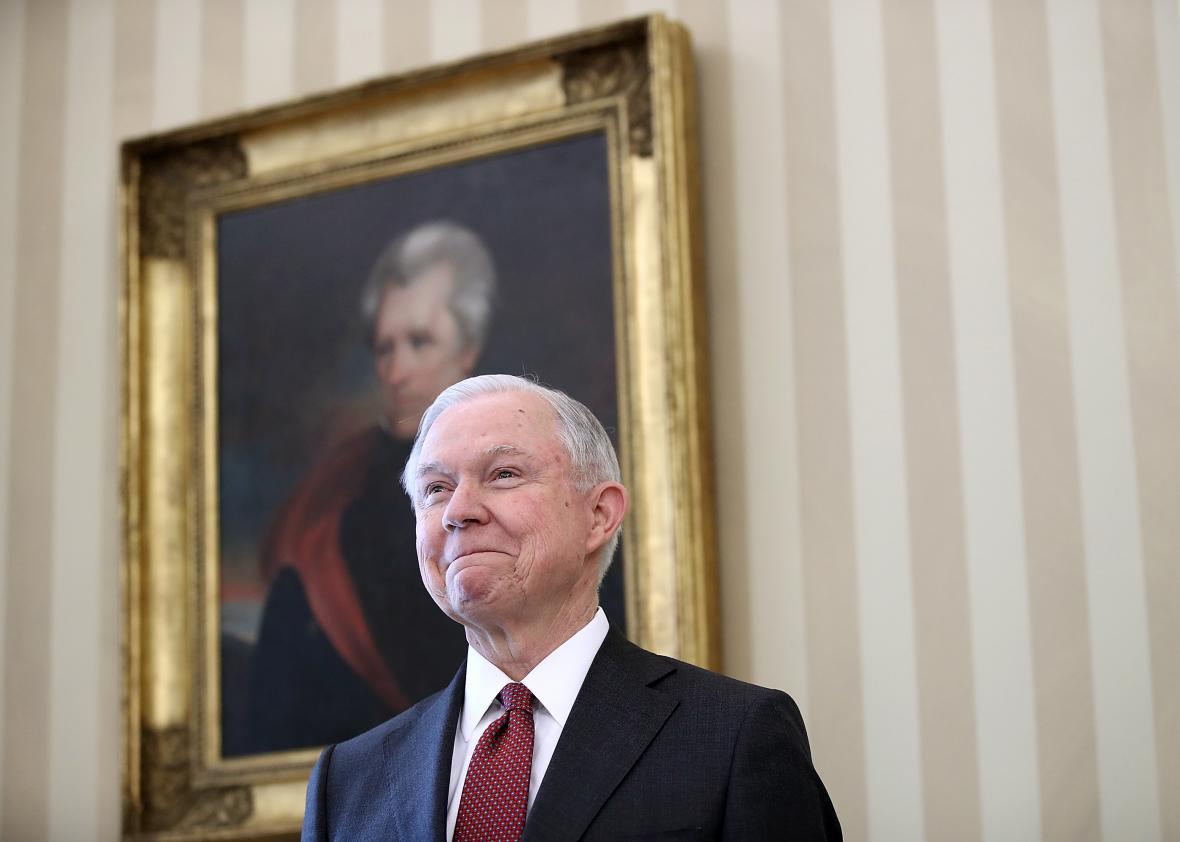On Tuesday, Attorney General Jeff Sessions disparaged Hawaii while ranting about the judge who blocked President Donald Trump’s travel ban. “I really am amazed,” Sessions said, “that a judge sitting on an island in the Pacific can issue an order that stops the president of the United States from what appears to be clearly his statutory and constitutional power.” Hawaiians were none too pleased with this characterization of their state, and on Thursday, Hawaiian Attorney General Doug Chin—who opposed the ban in court—condemned Sessions’ remarks:
President Trump previously called a federal judge in California a so-called judge. Now U.S. Attorney General Sessions appears to dismiss a federal judge in Hawaii as just a judge sitting on an island in the Pacific. Our Constitution created a separation of powers in the United States for a reason. Our federal courts, established under article III of the Constitution, are co-equal partners with Congress and the President. It is disappointing AG Sessions does not acknowledge that.
Actually, Chin is incorrect: The judge whom Trump denigrated as a “so-called judge” was Judge James Robart in Washington state; the California judge whom Trump criticized was Judge Gonzalo Curiel. Trump notoriously declared that Curiel, who was born in Indiana to Mexican American parents, could not impartially oversee the Trump University case because he was “Mexican.” He called Robart a “so-called” judge in a series of tweets preemptively blaming him for future terrorist attacks.
Chin might as well have invoked both Robart and Curiel, because Sessions’ comment was startlingly similar to Trump’s repudiation of both judges. And as my colleague Dahlia Lithwick pointed out, however, Sessions’ derision of Hawaii also had a Trump-esque undercurrent of racism. Hawaii has a familiar history with this: White-supremacist senators long blocked Hawaii’s admission into the union on the grounds that the state was majority-minority. They only assented to statehood in 1959, thanks to a deal that brought majority-white Alaska into the union first. By writing off Hawaii as merely some “island in the Pacific,” Sessions appealed to racists who continue to view Hawaii with suspicion because of its diversity and heritage.
But Sessions’ disrespect for the rule of law also mirrors Trump’s belief that the judiciary should serve as his rubber stamp. This is not how the law works, as attractive as it may be to the party in power. His remarks stand in stark contrast to the silence of President Barack Obama’s attorneys general, Eric Holder and Loretta Lynch, when each was forced to fight a similar nationwide injunction against an executive action issued by a single federal judge. As Joshua Matz notes at Take Care, both Holder and Lynch contended with a district court order barring Obama from deferring the deportation of 4 million undocumented immigrants. And during Lynch’s short tenure, she also saw a lone judge block a rule expanding overtime pay; federal guidance protecting trans schoolchildren; and a regulation protecting transgender patients from discrimination.
At no point did Lynch, Holder, or Obama question these judge’s legitimacy or disparage Texas, the state in which all of them sit. Such a comment would’ve undoubtedly provoked outrage on the right—as well it should have. Individual judges can put holds on federal orders, no matter where they live. Yet oddly enough, Sessions’ criticism of Hawaii has been largely met with silence by conservatives. It seems many Republicans believe the lone purpose of the law is to implement their own views at any cost.
